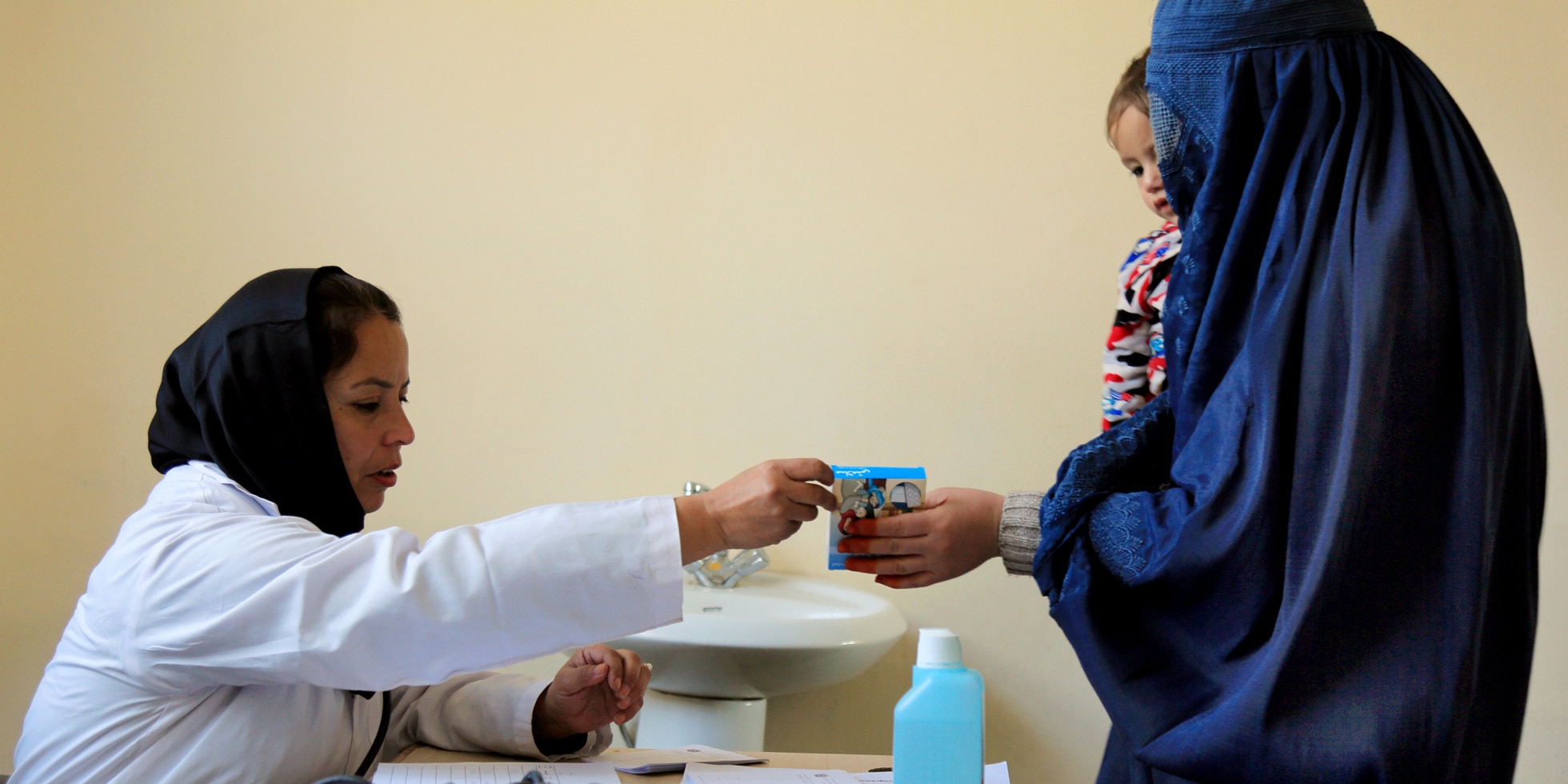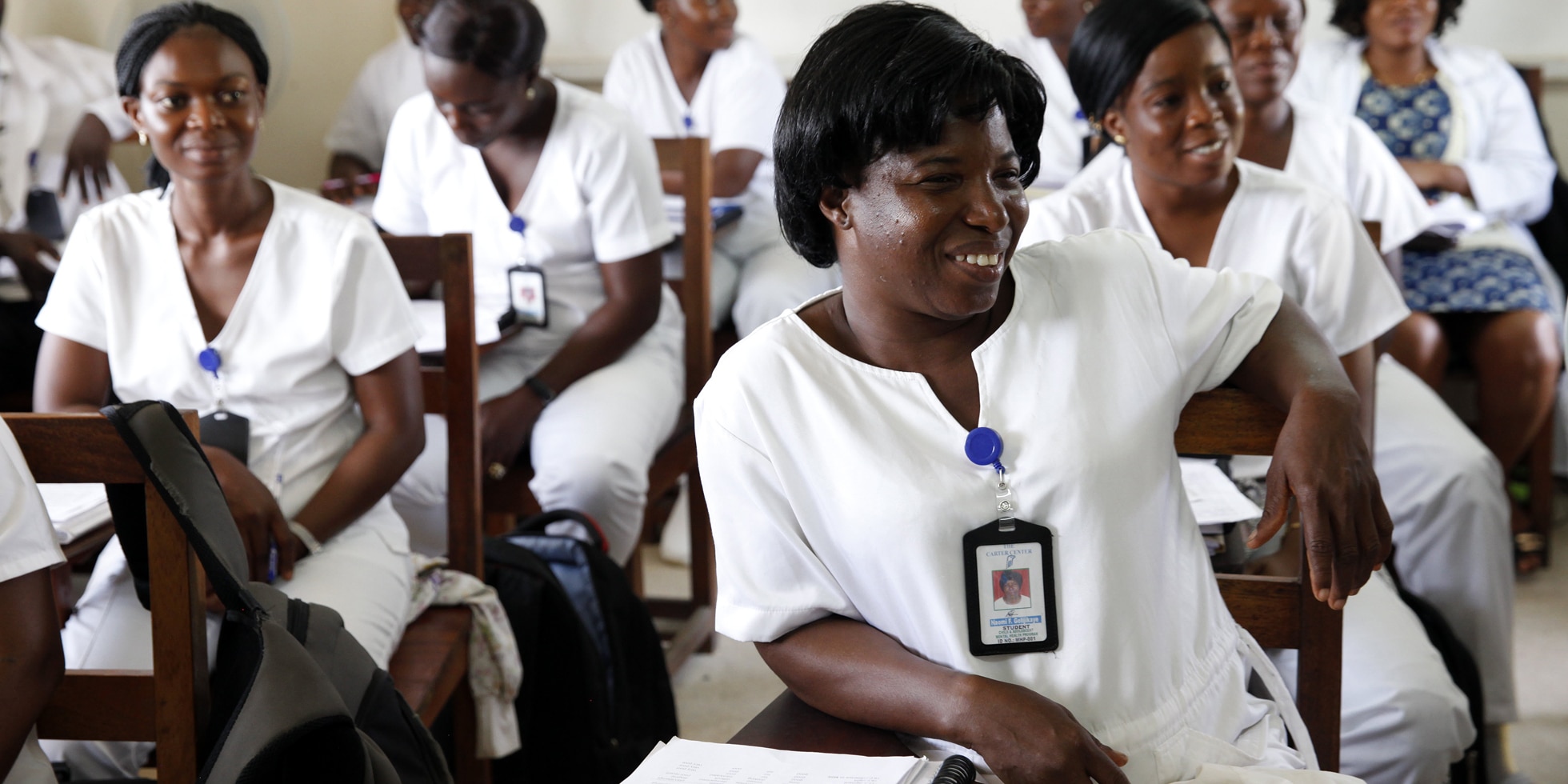Switzerland supports the World Bank Group's swift response to COVID-19
LEAD The UN has declared 24 April as the International Day of Multilateralism. The occasion serves as an important reminder that achieving the Sustainable Development Goals and building a safer, fairer world require everyone to work together. Switzerland is a firm presence in the international arena and, through International Geneva, provides a platform for multilateral action. It is also actively engaged in the multilateral response to the COVID-19 pandemic, which includes World Bank efforts.

A mother in Afghanistan receives medical support for her child. The World Bank and its members, including Switzerland, support the health system in Afghanistan and other countries. © World Bank
The challenges created by the COVID-19 pandemic are daunting and global in reach. The economic and social repercussions are especially severe for low- and middle-income countries. Their health care systems and economies are extremely vulnerable, and the impact of the pandemic threatens to undo decades of progress. Financial support and expertise are urgently needed to contain the spread of the pandemic, strengthen healthcare systems and protect millions of people worldwide living from hand to mouth, who risk going hungry and falling below the poverty line due to the economic standstill.
Switzerland – a committed member of the World Bank Group
At its 2020 Spring Meetings in mid-April, the World Bank decided on measures to tackle the situation. In the short term, it will focus its efforts to mitigate the fallout from the pandemic. Over the longer term, it will provide poorer countries with support to stabilise their economies and reduce their vulnerability to shocks. Switzerland calls on the World Bank to ensure that its response is targeted, sustained, and implemented in close coordination with partner organisations. During the response to the COVID-19 crisis, the 2030 Agenda and the Paris Agreement on Climate Change should remain an international reference framework on global sustainable development.
Through the IDA (International Development Association), the World Bank Group, which is the largest single source of funding and knowledge for developing countries, is able to quickly provide support to the poorest countries, as well as advanced developing and transition economies. As a member of the Board of Directors of the World Bank Group and a major IDA donor, Switzerland helps shape this emergency relief.
Favourable loans
The World Bank Group provides fast-track support to low-income countries like Kyrgyzstan, Ethiopia and Afghanistan. This financial assistance takes the form of favourable or interest-free loans and grants, which allow the countries to cover their health care costs. Financial support for businesses is the remit of the International Finance Corporation (IFC), the private sector arm of the World Bank. For example, it supplies local banks with liquidity to provide SMEs with emergency loans, similar to those currently available in Switzerland.
This fast-track emergency assistance would not be possible without the involvement of Switzerland and other member countries. Their core contributions and capital investments boost the financing capacity of the World Bank. In-house health and economic experts and specialists in many vital sectors enable the World Bank and the affected countries to set up and implement emergency response plans within a short space of time. Over the next 15 months, the World Bank Group will provide low- and middle-income countries with up to USD 160 billion in financial support; it has already released a first USD 14-billion package.
Establishing robust and well-functioning structures

Through their global cooperation activities, the SDC and SECO support the World Bank's responsive and proactive approach. Switzerland is firmly committed to ensuring that all new projects create robust and well-functioning structures, tackle the root causes of problems like debt, poverty, underperforming healthcare systems, weak institutions and poor governance. Switzerland is a valued member of the World Bank's Board of Directors. Its participation means that World Bank projects can draw on Swiss public health expertise. Thanks to its network of representations abroad, Switzerland has detailed knowledge of the situational context and provides Washington with direct feedback on local needs and implementation. Furthermore, Switzerland always insists that projects are planned and implemented in close coordination with the World Health Organization and other development agencies to avoid duplications and ensure international support is complementary and can therefore achieve maximum impact.
In Switzerland's interests
The effective containment of the COVID pandemic and the mitigation of its socioeconomic ramifications for low- and middle-income countries is not only a demonstration of solidarity, but serves Switzerland's interests too. In our interconnected world, recurring outbreaks of the virus will overwhelm healthcare systems and pose a global threat. Economic crises may stoke social tensions; Switzerland will quickly feel the effects of these developments.
Focus on prevention and resilience
A rapid and comprehensive response, particularly to crises in fragile contexts where extreme poverty is increasingly concentrated, is in Switzerland's interests. These crises have far-reaching consequences, which could ultimately affect Switzerland. Crisis prevention, resilience and fragile contexts are therefore the focus of Switzerland's cooperation with the World Bank. The main objectives of these joint efforts are the establishment of well-functioning institutions, the targeted reduction of the root causes of conflict, and the development of the private sector in order to generate opportunities locally. The response to the COVID-19 crisis and its consequence will not affect the importance given to the pursuit of these objectives. The pandemic has also shown that even middle-income economies are severely affected by external shocks. As well as having to contend with the short-term effects of the crisis, these countries will be obliged to take steps to improve the resilience of their national systems and their international relations. This is also in Switzerland's interest.
The World Bank Group
The World Bank Group is the single largest source of funding and knowledge for developing countries. In the context of the 2030 Agenda for Sustainable Development, the Group is committed to helping end extreme poverty. It therefore pursues two main goals. The first is to reduce the share of the global population who lives on less than USD 1.9 per day to 3%. The second is to boost shared prosperity by fostering the income growth of the bottom 40% for every country.
The World Bank Group consists of the International Bank for Reconstruction and Development, the International Development Association, the International Finance Corporation, the Multilateral Investment Guarantee Agency, and the International Centre for Settlement of Investment Disputes. These five institutions share a commitment to reducing poverty, increasing shared prosperity and promoting sustainable development.
The International Development Association (IDA) helps the world's 77 poorest countries to end extreme poverty and create sustainable prosperity for all. It offers support for health and education, infrastructure and agriculture, and economic and institutional development. It advises governments on programmes to achieve these goals. To finance these programmes, IDA issues loans and grants, and provides substantial debt relief.
Switzerland joined the World Bank Group in 1992, and has been an IDA contributor country since the 1960s.
Links
- SECO article: 'Helping developing countries become more resilient' - Switzerland and the World Bank Group
- Switzerland and the International Development Association of the World Bank – IDA
- New Swiss representative at the World Bank Group
- Switzerland is committed to a strong multilateral system
- New Swiss representative at the World Bank Group
- Switzerland is committed to a strong multilateral system.
